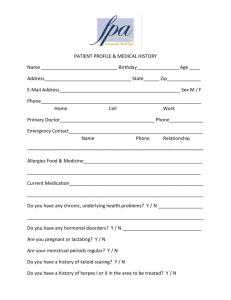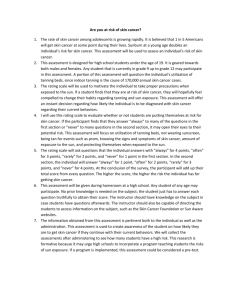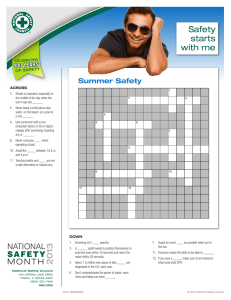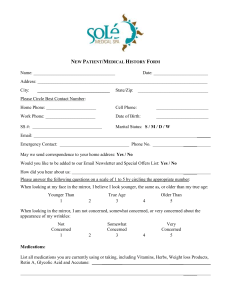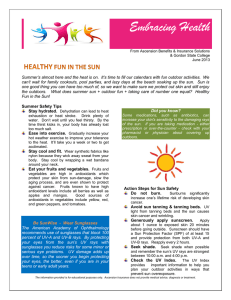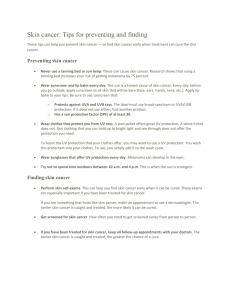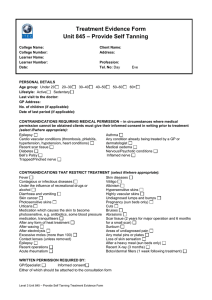Tanning & Cancer: Lesson Plan for Teens
advertisement
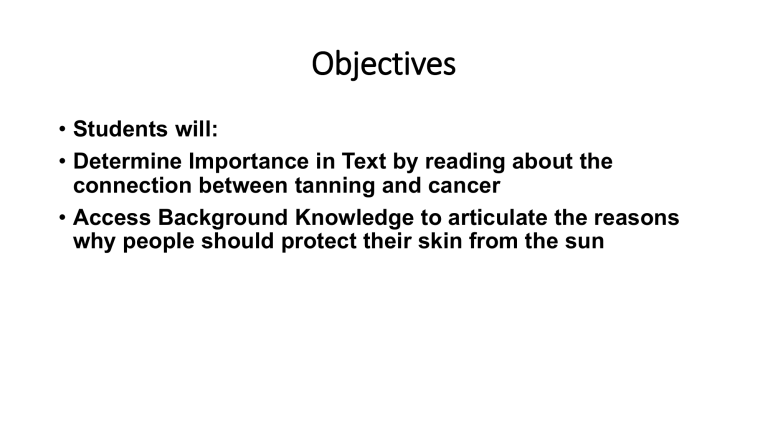
Objectives • Students will: • Determine Importance in Text by reading about the connection between tanning and cancer • Access Background Knowledge to articulate the reasons why people should protect their skin from the sun Anatomy Science Starter 2/13/19 • True or false: Tanning beds are a safe way to get some color without risking sun damage. • Between what times is the sun’s rays the strongest? • True or false: Some medications, such as prescription acne medications or birth control pills, can increase your sensitivity to the sun. • Do celebrities have a responsibility to educate the public about tanning and its effects? Discussion Questions • What are the short-term effects of sun exposure? What are the long-term effects? • How do the sun’s UVA and UVB rays affect the skin? Between what times of day is the sun at its strongest? • What should people look for in a protective sunscreen? How should they apply it? • How much does sunscreen does it take to protect the skin? How can people who like a tan get the look without the sun? • What are the signs and symptoms of skin cancer? How old does someone have to be to get it? Informational Brochure • The greatest point of this activity is information. What do you think teens should know about sun exposure, sun damage, and skin cancer? What message do you want to send about the idea that a person's real skin color looks better than a tan? Have you heard any myths floating around that you’d like to correct? Using the articles, design an informational pamphlet to convince teens why it’s smart to stay out of the sun and tanning salons. Be sure to include convincing facts and statistics.
